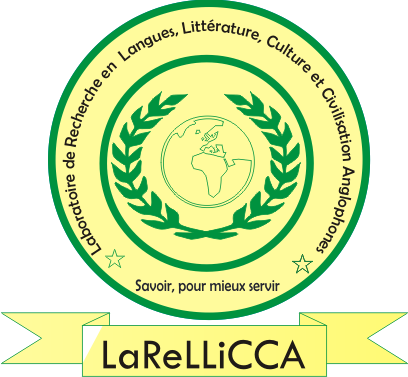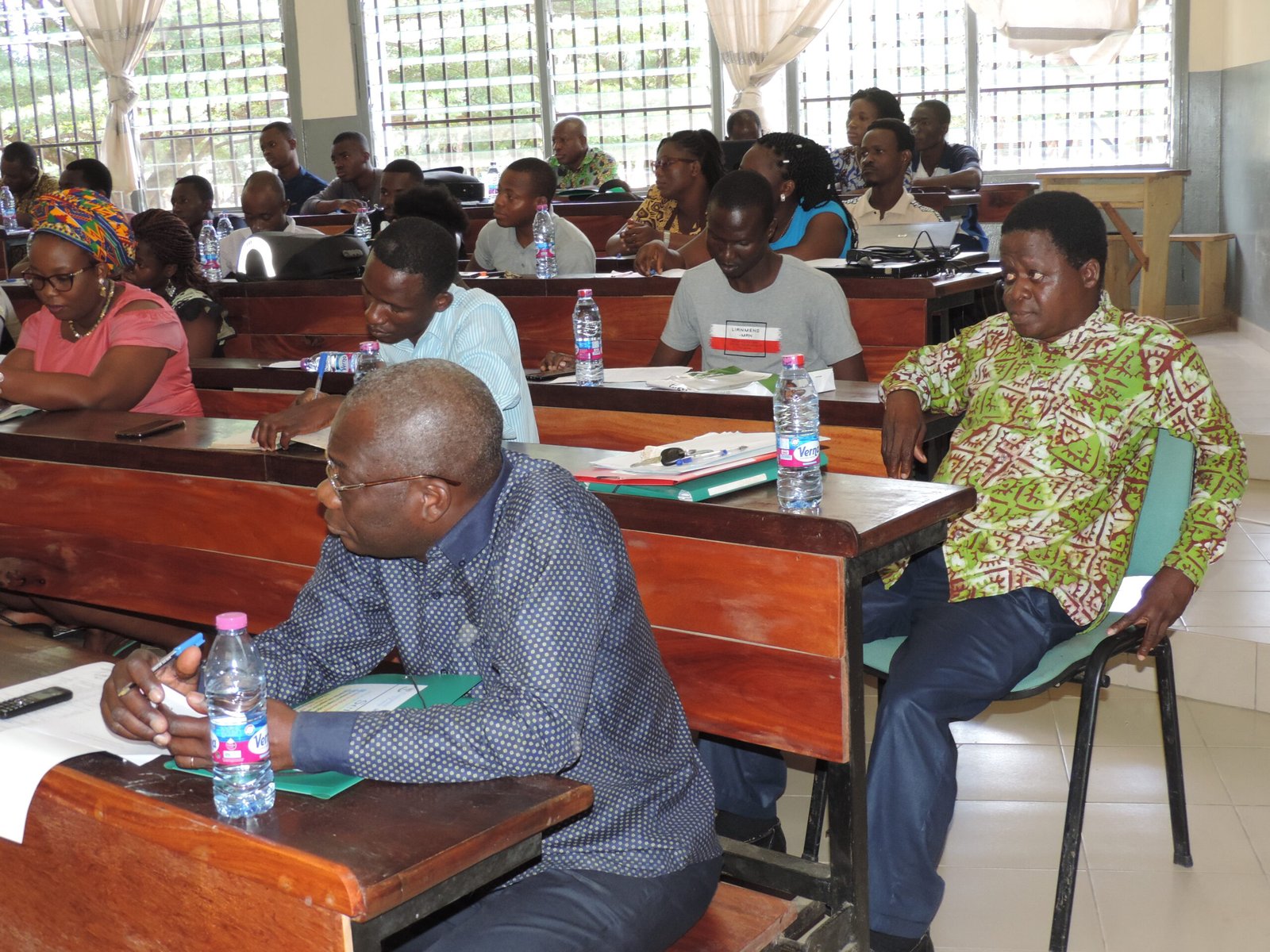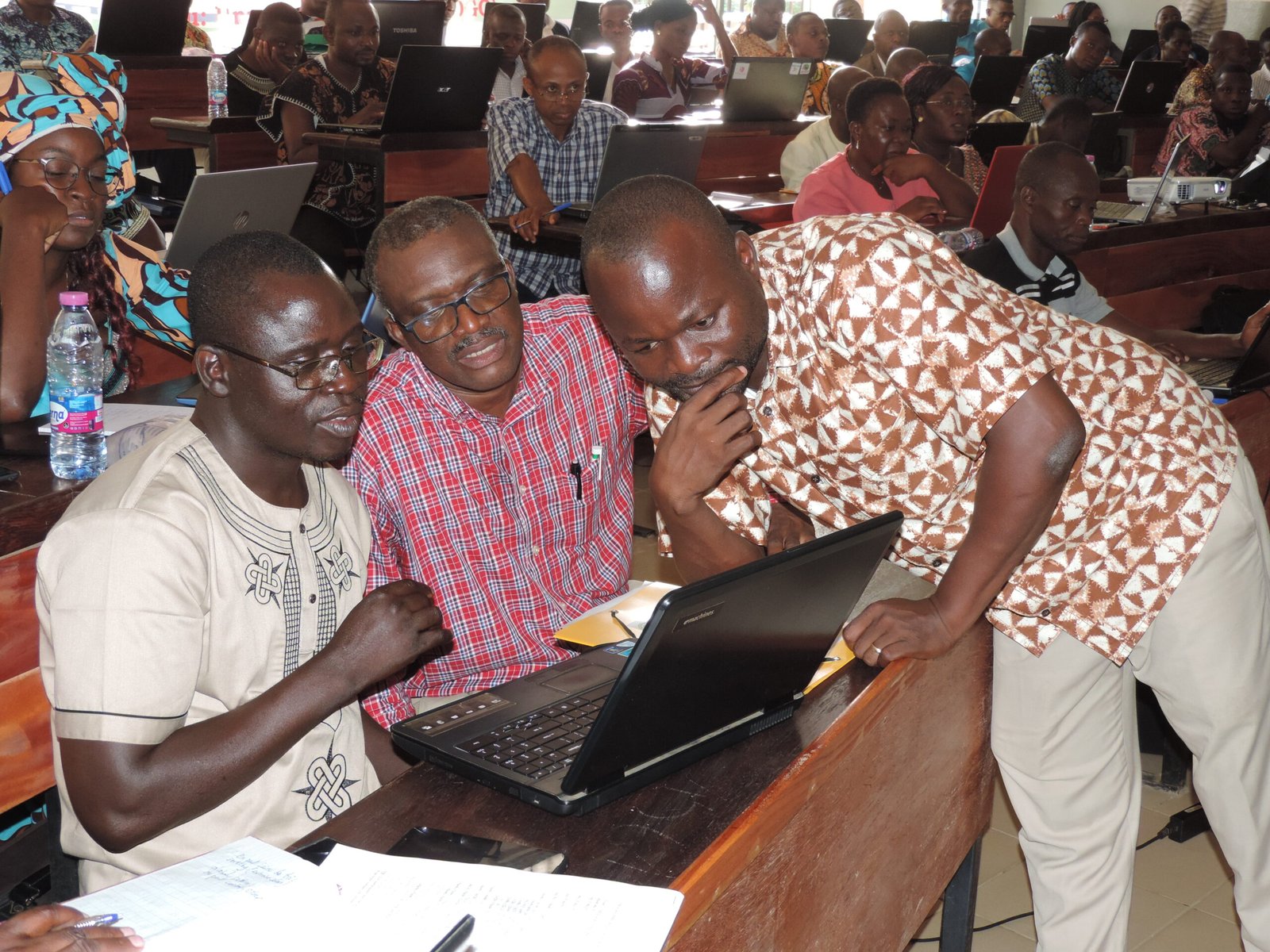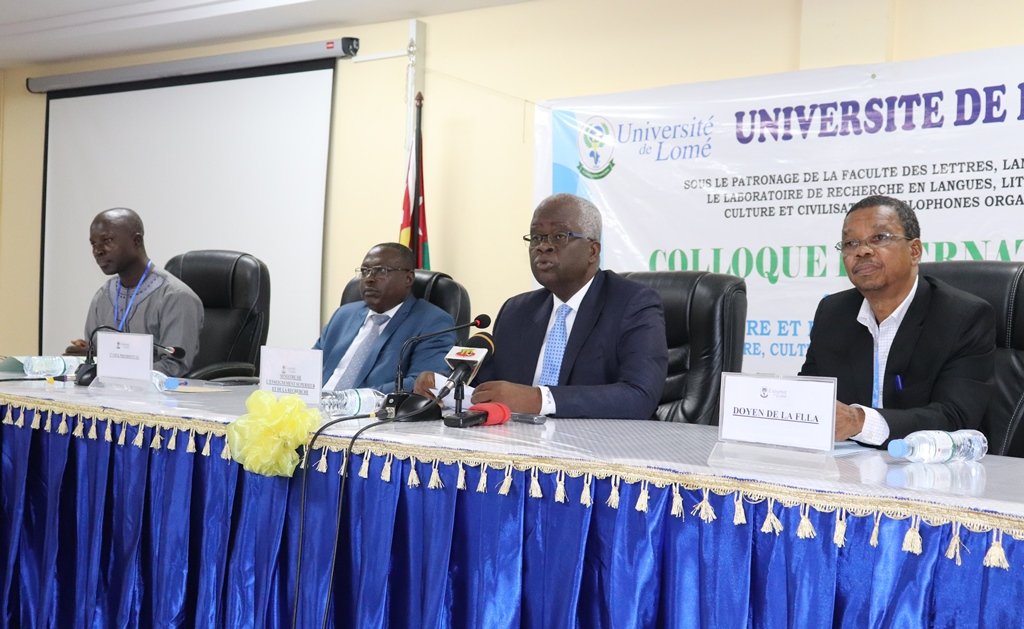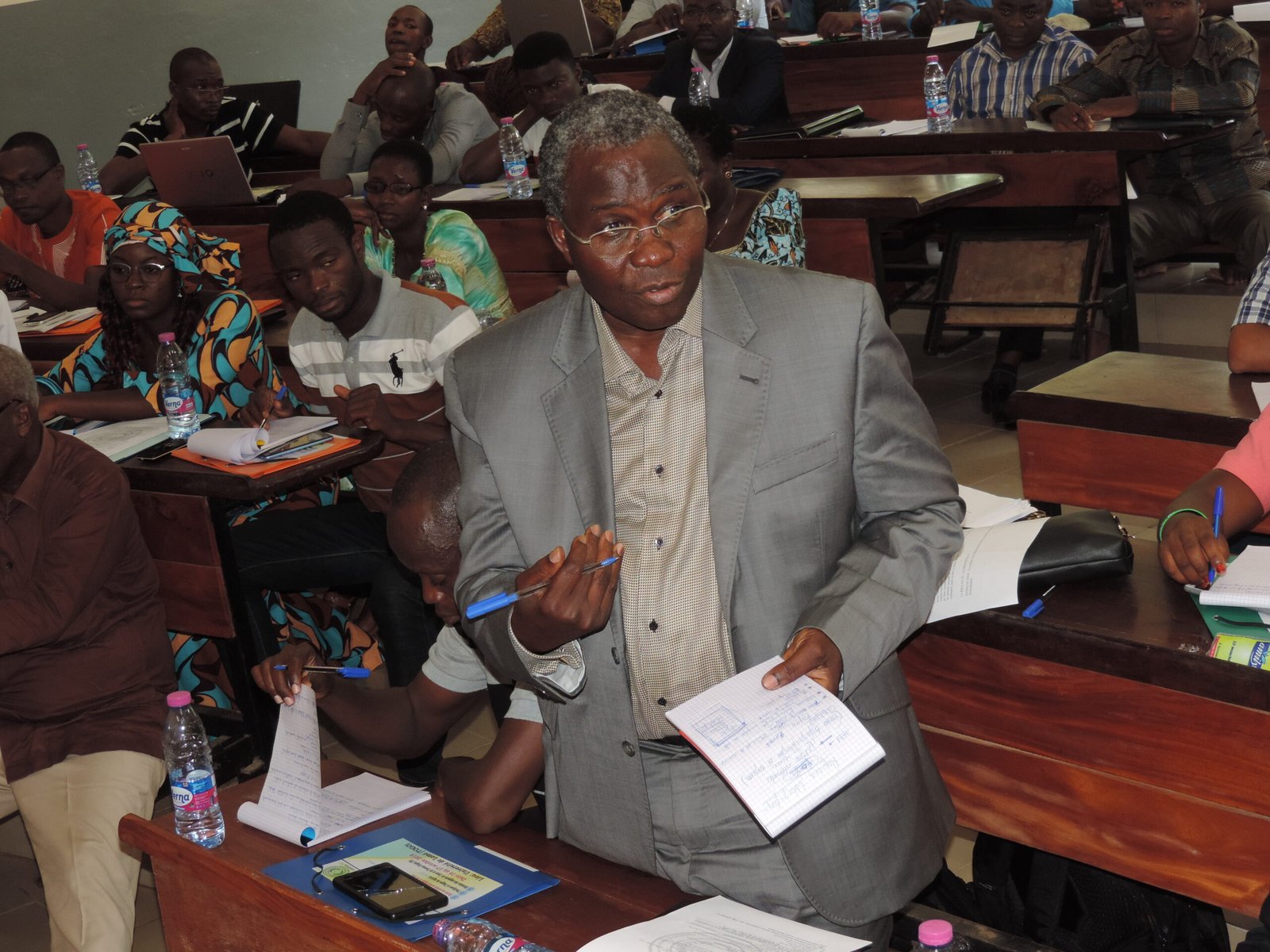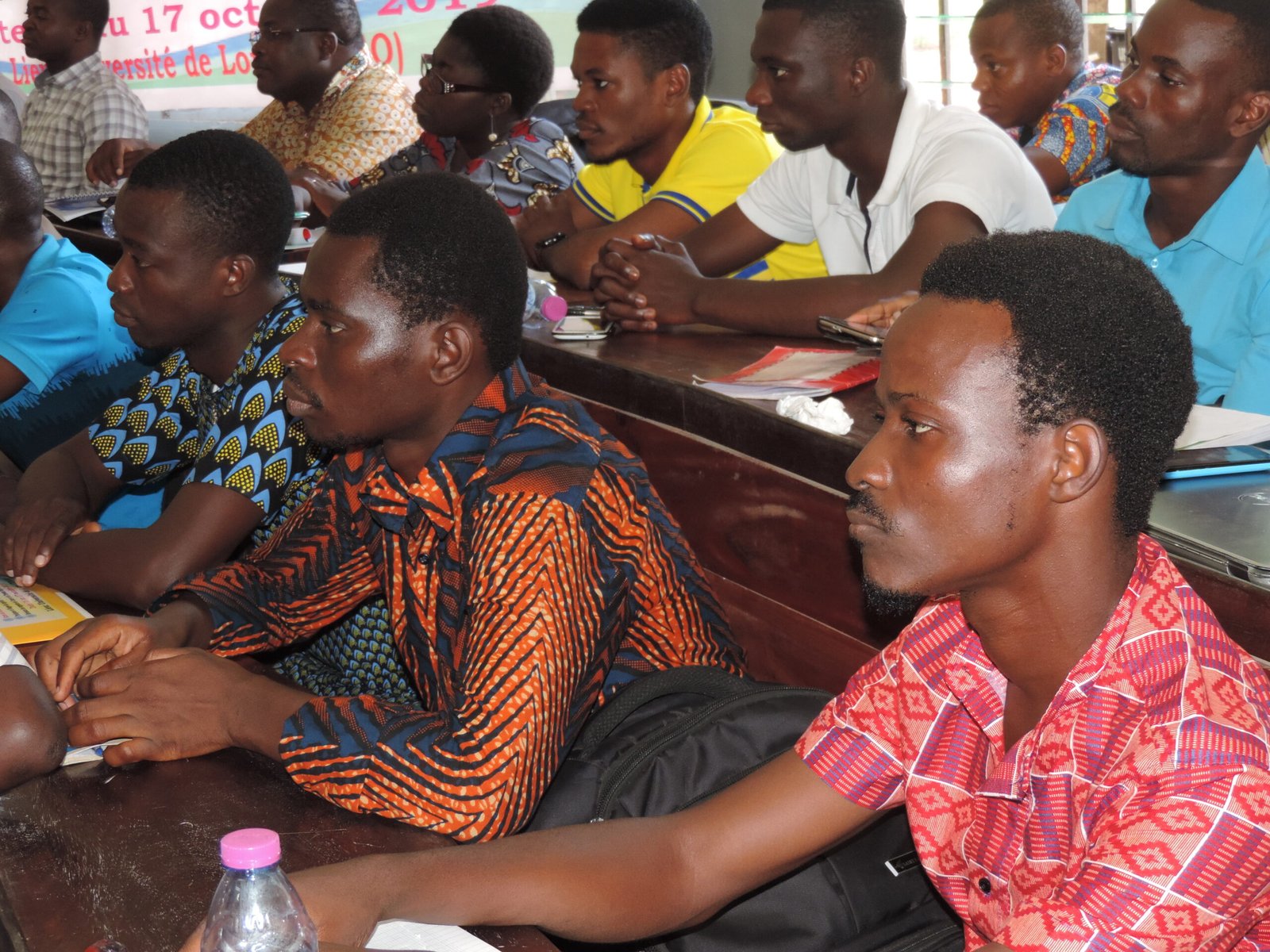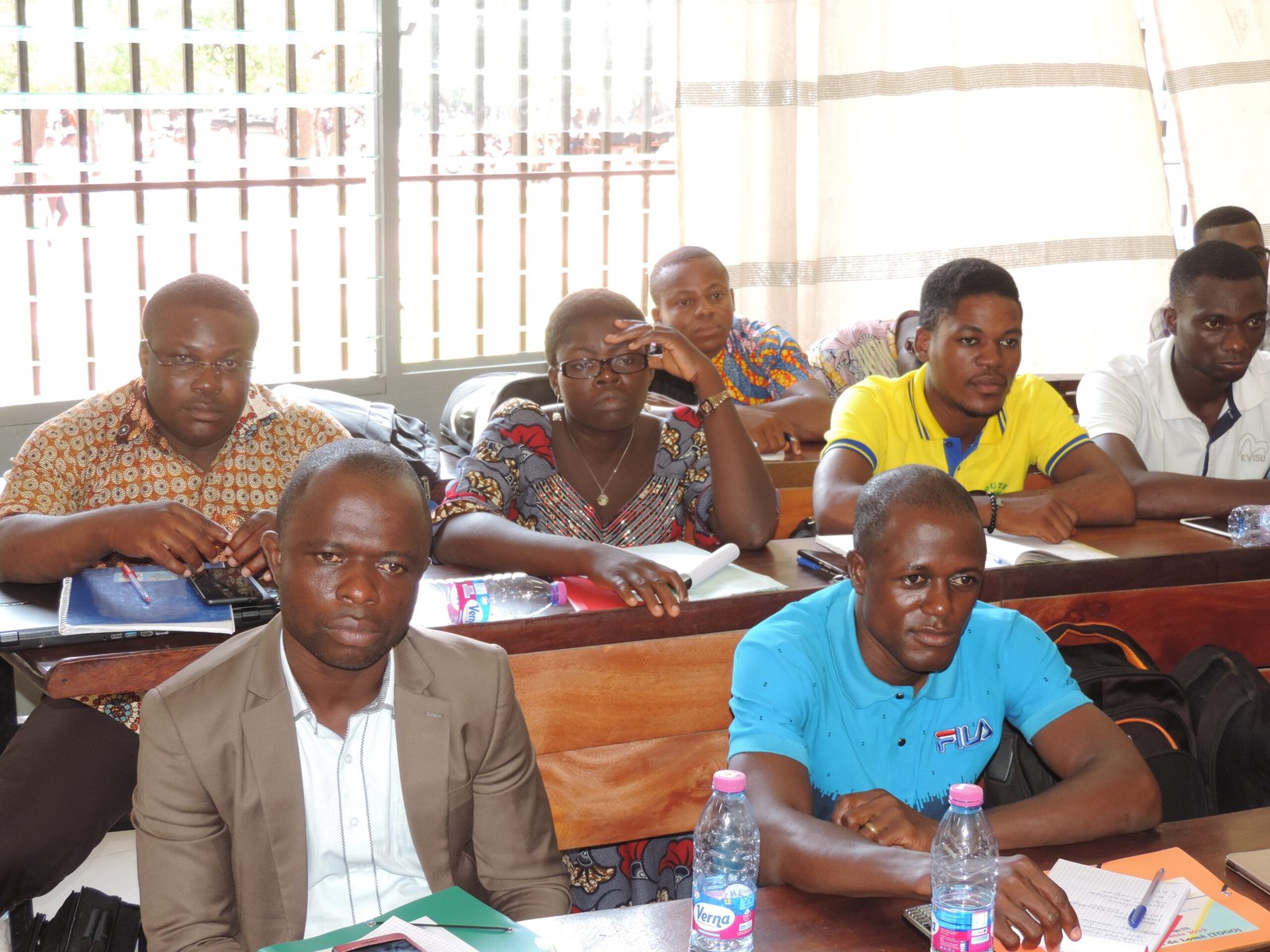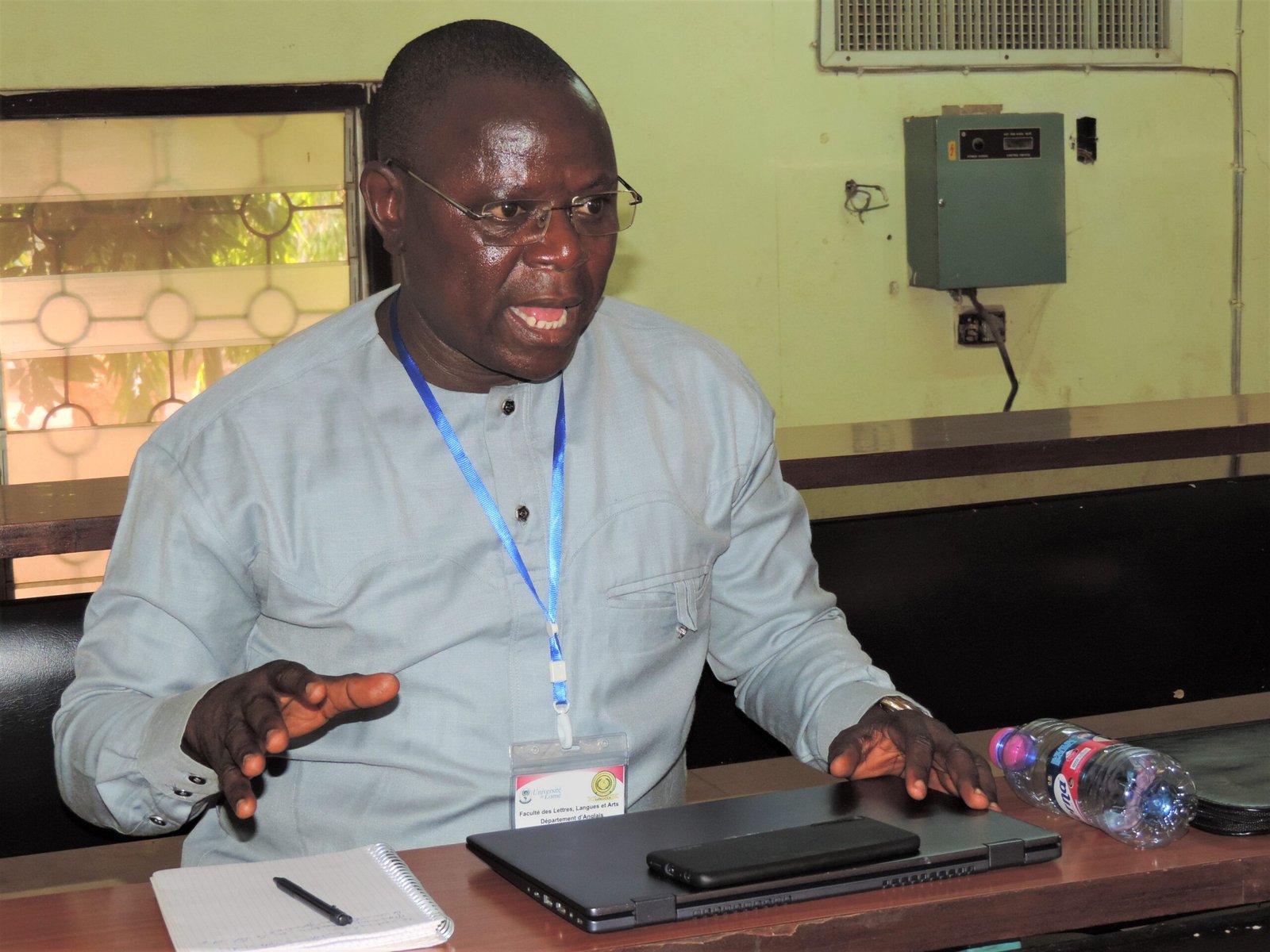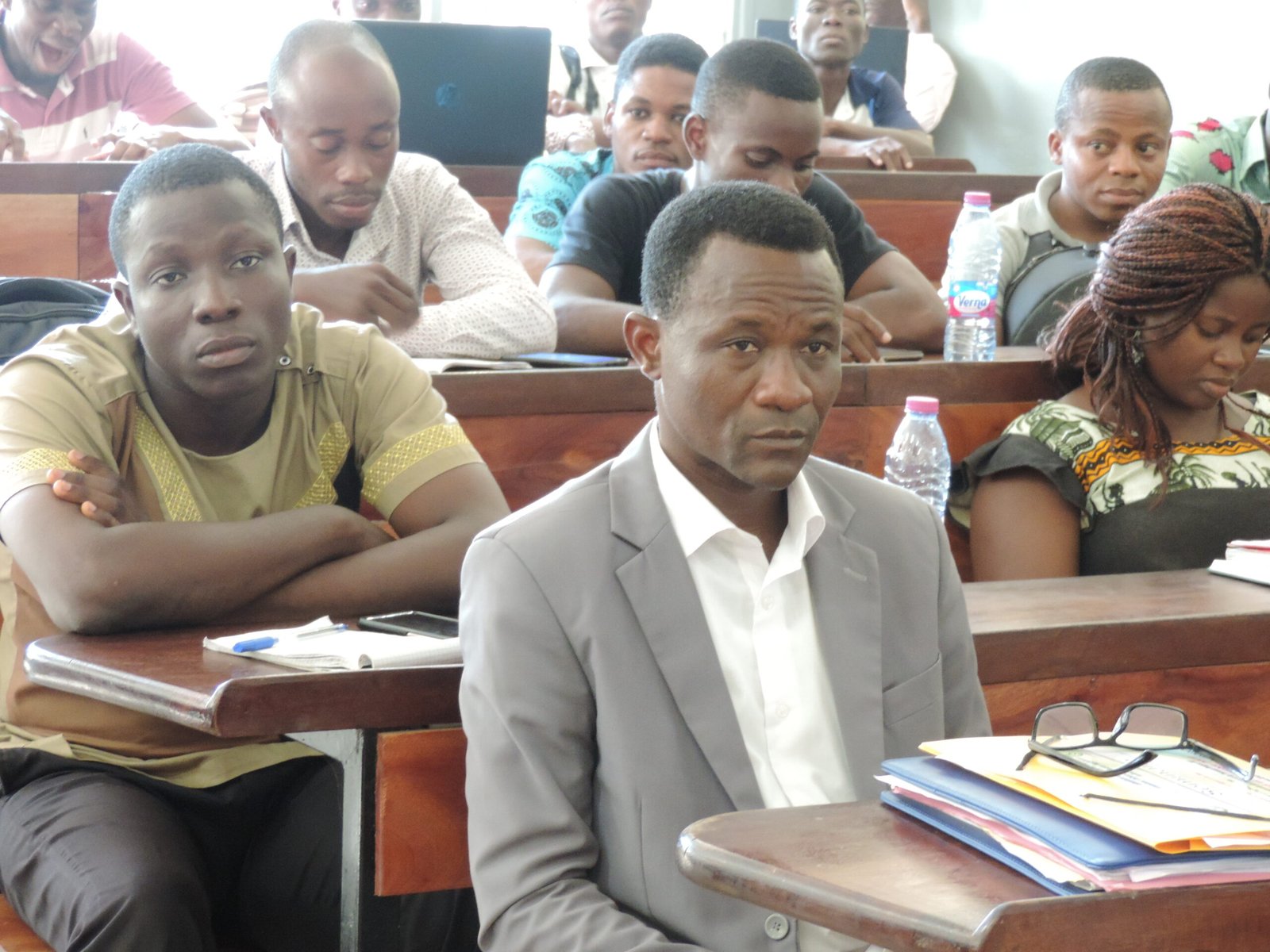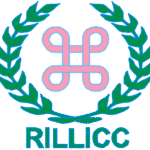ISSUE N°1
Article 1: L’art de dramatiser et de dédramatiser dans les sociétés orales : Leçon d’une ethnographie de la musique hake chez les eʋe du sud-est du Togo
Yaovi AKAKPO,
Université de Lomé
Email ːyfakakpo@gmail.com
Abstract
This paper is based on the assumption that in African oral societies, the use of creative fiction in the speech arts was intended to dramatize and to de-dramatize history. The hake music, formerly practiced by the eʋe of the south-east of Togo, appears, because of its double vocation to dramatize and to de-dramatize social happenings, as a typical model of oral art, in African oral societies. Through the study of hake music, this paper has found that, in these societies, the practical function of oral art was to avoid, within the limits of what is possible, the destruction of clans. For, the oral aesthetic mannerism was designed, instead of war, to express social evils through words and to have words update history.
Key-words: oral art, speech game, fiction, dramatization, dedramatization,
music, hake.
Article 2: Le plan national de développement comme stratégies curatives et préventives au service du développement et de la paix : Un regard d’un littéraire
Ataféï PEWISSI,
Université de Lomé,
Email : sapewissi@yahoo.com
&
Pédi ANAWI,
Université de Lomé,
Email : anawi28@gmail.com
Abstract
The national development agenda is both a creative project and its implementation techniques. In this regard, literature maps a life plan and its idyllic programming. The selected Togolese created works is a case study for the implementation of the agenda. The purpose of the study is
to raise the understanding of how the national character triggers a sustainable development basing on a distributive justice. Geocriticism is a tool for the study of culture, conduct and people’s visions whereby characters’ appraisal sheds light on the assets as well as the obstacles to
sustainable development.
Key words: Perception, literature, development, strategy, peace.
Article 3: La symbolique de la présence négro-africaine en Amérique latine
dans Les enfants du Brésil de Kangni Alem
Weinpanga Aboudoulaye ANDOU
Université de Lomé
Etudes Ibériques
e.mail : andouaboudou@yahoo.fr
&
Piyabalo NABEDE
Université de Lomé
Lettres Modernes
Abstract
This study aims to highlight the elements used by the narrator in Kagni Alem’s novel entitled Les enfants du Brésil to value black characters. This study found that the work of the Togolese writer brings a change in the literary paradigm dedicated to the image of black race in the sense that it goes beyond the criminalization of the triangular trade and slave trade in Latin America. It highlights the values the African Negro brought to the building up of this part of the world. This study, while basing on semiotics, concluded that the novel denounces frontally the sweat and the bloodshed of the Negros, emphasizing the recurrence of other valuable contributions of these victims to the development of the New World.
Keywords: African Negro, Latin America, trade, criminalization, values.
Article 4: Le parti pris de la paix dans le Tchighida du père Arthaud de Kadjangabalo Sekou
Kpatimbi TYR
Université de Lomé
tyr.herve97@gmail.com
Abstract
The aim of this study is to explore the discourse of the concept of peace in Kadjangabalo Sekou’s Le Tchighida du père Arthaud. It outlines the postulates that contribute to promoting and consolidating peace. The study has found out that peace can only be attained by building a fair society and by respecting the devolution rules of political power. The analysis of the discourse and social criticism will be helpful to the demonstration.
Keywords: mediation, conflict, education, pragmatic, resolution
Article 5: The Rebuilding of Ecological Peace in Leslie Marmon Silko’s CeremonyThe Rebuilding of Ecological Peace in Leslie Marmon Silko’s Ceremony
Kpatcha Essobozou AWESSO,
Université de Kara, Togo
English Department,
E-mail: awessander@yahoo.fr
Abstract
Peace is much referred to the harmony and stability that exist within the scope of human beings’ relationships. The concept of peace can be brought beyond the human sphere and thought in the sense of the spirit that insures harmony among all the elements of creation. The Native American novelist Leslie Marmon Silko successfully depicts, in Ceremony, how harmony between man and nature is disrupted in the fictional Pueblo Laguna setting. The Western contact has completely degraded the local ecosystem, and the writer sets out for a journey to restore peace between man and nature. From an ecocritical point of view, this work sustains that, the concept of peace is applied to human beings and nature relationship in Silko’s Ceremony.
Keywords: Ecological peace, ecosystem, Native American, ecocriticism
Article 6: A Marxist Perspective on Mass Oppression and Challenges in Ngũgĩ wa Thiong’o and Ngũgĩ wa Mĩriĩ’s I Will Marry When I Want
Badèmaman Komlan AKALA,
Université de Lomé
Email: akala330@yahoo.fr
Abstract:
Exploitation and oppression are often the result of the need of one class to secure personal interest to the detriment of the other. Through the exploration of the playwrights’ literary articulations of some forms of oppression, the study explores the problems the lower class is exposed to and the necessary strategies that need undertaking to secure justice where personal interest and the scramble for the material and capital tend to be the guide marks for success. Through the lenses of Marxist criticism and
semiotics, the study equally examines the playwrights’ discursive strategies put in place to call the readership to cause positive changes in the social arena.
Key words: oppression, lower class, strategies, justice, positive change.
Article 7: A Call for Forgiveness and Racial Reconciliation in Patricia Raybon’s My First White Friend
Malou LADITOKE,
Université de Kara, Togo
Département d’Anglais, Littérature Américaine.
E-mail: laditimothee@gmail.com
Abstract
The preservation of peace is important for the development of every individual and his country. Thus, without peace, no evelopment is possible and tangible. Hatred as a response to social injustices, political oppressions, racial and religious persecutions, remains more harmful to the victimized than to the victimizer. Peace requires forgiveness and reconciliation among people, ethnic groups and races. Basing on New Historicism as theoretical framework, the study of Patricia Raybon’s My
First White Friend emphasizes the importance of forgiveness and reconciliation in order to guarantee peace among all the human beings.
Keywords: hatred, forgiveness, reconciliation, peace.
Article 8: Creative Writing and the Culture of Peace: An Approach to Adichie’s Half of a Yellow Sun and Iroh’s Forty-Eight Guns For The General
Palakyem AYOLA,
Université de Lomé, Department of English,
Email:stephaneayola@gmail.com
Click here to download ↓
Abstract:
This study aims to explore the strategies put in place by Adichie and Iroh in their respective narratives to call for prevention of conflicts for peace and social development to take place in Africa and beyond. The theoretical framework that sustains this study is the literary cultural diplomacy. This literary theory is defined by Milton Cummings (2003: 1) as a set of values, attitudes and beliefs that are put altogether to prevent crisis, to create and entertain peace in interpersonal relationship. The study concludes that awareness raising, compromise and reconciliation are the basic foundations for the achievement and maintenance of peace and security for the development of Africa.
Key Words: Conflict, War, Peace, Development.
Article 9: Confidence Dissipation and the Living Together in Meja Mwangi’s The Big Chiefs
Magnoubiyè GBABANE
Université de Lomé,
christophegbabane@gmail.com
Abstract
After independence, some African countries were torn into shreds. As depicted in The Big Chiefs, the big chiefs have adopted behaviors and attitudes that create in the life of ockroaches8 confidence dissipation which makes the idea of cohabitation difficult to implement. The objective of this article is to analyze these ehaviors and attitudes that
make confidence dissipation a stumbling block to cohabitation and a reason for the restoration of confidence among Africans conducive to cooperative life. The analysis is based on linguistic Semiotics which enables the reader to consider everything involved in the novel as a sign
that needs decoding. New Historicism in the study focuses on the imaginative facts alongside their socialfacts that inspired their creation.
The study has foubd that behaviors and attitudes engendering confidence dissipation are obstacles to living together and, in the process, calls for a responsible change.
Key words: confidence, dissipation, together living, promote.
Article 10: From Xenophobia to Collusion: A Socio-Educative Reading of Shakespeare’s The Merchant of Venice and Othello
Casimir Comlan SOEDE,
Université d’Abomey Calavi, Bénin
Email: cacoss12000@yahoo.fr/ csohede@gmail.com
&
Biava Kodjo KLOUTSE,
Université de Kara, Togo
Email. biavaland8@gmail.com
&
Hergie Alexis SEGUEDEME,
Université d’Abomey-Calavi, Bénin
Email : hergiealexiss@gmail.com
Abstract
The purpose of this study is to show how xenophobia which is a hate of a foreigner turns to collusion which connotes conspiracy for interest at times among enemies. Thanks to the Psychoanalytic approach, the study has concluded that whatever racial difference, socio-economic considerations, or cultural and political patterns among people, people’s open-mindedness as well as human values should positively affect decision-making for the better beyond xenophobia and conspiracy.
Keywords: xenophobia, collusion, egotism, immigration, peace.
Article 11: Literary Appraisal of Superstitious Beliefs in Amma Darko’s Faceless
Moussa SIDI CHABI,
Littérature Africaine Anglophone, Département des Etudes Anglophones
Faculté des Lettres, Arts et Science Humaines
Université de Parakou (UP), Parakou, République du BÉNIN
Email: sidichabi@yahoo.fr
Abstract
This study aims at making explicit the devastating nature of superstitiousbeliefs through Amma Darko’s Faceless. Superstitious beliefs, based on mere assumptions, constitute a serious problem in the African society since they generally cause great havoc to innocent people that are falsely accused. The methodological approach used is documentary research which includes internet sources and library sources, books, theses and doctoral dissertations. The study has found that superstitious beliefs cripple African communities insofar as they are usually false beliefs. The literary theory used in this research work is the archetypical critical approach through examining narrative devices, character types, myths, dreams, and even ritualised modes of social behaviour to generate potential meanings.
Keywords: Superstitious beliefs, assumptions, great havoc, false beliefs.
Article 12: Pronunciation and Semantic Disorders Due to the Influence of the French Language on the EFL Secondary Students
Sourou Seigneur ADJIBI,
Département d’Anglais / FLLAC / UAC,
E-mail : aseigneur1@gmail.com
&
Patrice AKOGBETO,
Département d’Anglais / FLLAC / UAC,
E-mail : akopat17@yahoo.fr
Abstract
The emphasis is laid on some English sounds and some cognates or falsefriend words in French and English, which usually create confusion or negative transfer for the students while learning the English language. The results show that the learners do not know the basic differences of sounds: the sounds which do not exist in English and vice versa. Also, they think that the words spelled in the same way in both languages do have the same meaning. Class observation and Questionnaires are used to collect data; statistical frequency is also used for the analysis and
interpretation of the results.
Keywords: disorders, students, pronunciation, transfer, cognates.
Article 13: Exploring the Language of Conflict Rise and Conflict Resolution in Elechi Amadi’s The Great Ponds: A Systemic Functional Perspective
Cocou André DATONDJI,
Département d’Anglais, Université d’Abomey-Calavi,
Email address: datondjia@yahoo.fr
Abstract
This study investigates language use in an extract from The Great Ponds through the Transitivity analysis, within the lens of Halliday’s Systemic Functional Linguistics. The Transitivity analysis applied to a selected corpus from Elechi Amadi’s The Great Ponds shows the use of Material processes [95 (45%)], Mental processes [42 (20%)], Verbal processes [39 (18%)], Relational processes [30 (14%)] together with Existential and Behavioural processes in much lesser proportions. The mixed method analysis used in this paper served as a scientific ground to unveil and discuss the use of language to represent initiative takers, participants, circumstances of conflict rise and perpetuation. The work concluded on the major importance of language as a tool for peace construction and conflict resolution when used with care.
Key words: Conflict, conflict rise, conflict resolution, leadership,
interpersonal relations
Article 14: The Grammatical Representation of Experiences in the Dalai-Lama’s Address to the European Union: A Critical Discourse and Systemic Functional Linguistic Approach
Albert Omolegbé KOUKPOSSI,
koukpossialbert@gmail.com
&
Innocent Sourou KOUTCHADE,
koutchade2@yahoo.fr
Abstract
This study explores the 14th Dalai Lama’s address to the European Parliament (2001) in the framework of Critical Discourse Analysis and Systemic Functional Linguistics with a special focus on transitivity. It offers an insight into the textual and grammatical strategies used by the Tibetan leader to foreground his nonviolent ideology through a cautious choice of processes and the participants involved in their realisation. Aclause-by-clause analysis of the text has helped to identify, quantify and gage the implication of each process in the building of a rhetoric about the right of the Tibetan to political and religious autonomy. This study has found that there is a concentration of Material and Relational processes which can be accounted for the fact that the text is built up on a series of actions taken by the Monk and the representation of China and the Chinese government as a social actor whose deeds affect the Tibet and its people in a critical way.
Keywords: Critical Discourse Analysis, Transitivity, processes, nonviolence ideology, representation
Article 15: L’insulte comme « une fausse monnaie verbale » En lama ː Quand le langage devient un jeu
Tchaa PALI,
Université de Kara
Email ː paliest@gmail.com
&
Timibe NOTOU YOUR,
Université de Kara
Email ː timibenoty@gmail.com
&
Akintim ETOKA,
Université de Kara
Email ː rodrigueetoka900@gmail.com
Abstract
This study argues that the insult is an act of violence in social speech acts while negotiating family or kinship relations in languages such as Eastern Gurunsi the Lama belongs. Given the context of Lama, the study has noted that the insult occurs in bidirectional or unidirectional exchange whereby the speaker associates a physical, moral, psychological, mental or even behavioral defect of the audience with an object, an animal or a human being. Based on the descriptive use of language, the study established that the ideophone and the adverb are the linguistic supports of this linguistic act which is much more playful than vexatious. The study has found that the uttering of an insult in this context shows excess with a deliberate alteration of logico-linguistic competence and the predication of the imaginary without any real connection with the xtralinguistic world.
Keywords ː insult, ideophone, false address, false money, Lama.
Article 16: La traduction: Dialogue identitaire et vecteur de paix
Akponi TARNO
Département d’Anglais, Université de Lomé,
E.mail : tarnoakponi@gmail.com
Abstract:
Peace and sustainable evelopment of global and local populations are key research issues. These meetings on socio-political and economic issues are held only in international languages excluding local languages that could be of great importance. Qualitative and quantitative data was collected and analysed through a Sociolinguistic approach to translation. The study has found that translation into local languages is a good means of consolidation of peace and local communities’ development through its multicultural and transdisciplinary capacity given that local communities are the bed rock to every nation.
Keywords: dialogue, identity, development, local language, peace
